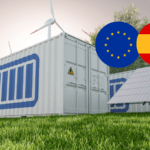The European Commission has approved, under EU State aid rules, a €612 million Portuguese scheme to lower electricity levy rates for energy-intensive companies. The scheme intends to reduce the risk that these energy-intensive companies relocate their activities to countries outside the EU with less ambitious climate policies. An energy-intensive company is a business that consumes a large amount of energy as a core part of its production process.
The Portuguese scheme
Portugal has implemented several levies to fund its energy and environmental policies. This includes levies financing (i) electricity production from renewable energy sources, (ii) support for energy efficiency, and (iii) social tariffs and promotion of electricity generation in isolated regions.
The State aid scheme aims at lowering the levy rates for energy-intensive companies, to mitigate the risk that they relocate their activities to locations outside the EU with less ambitious climate policies. The scheme will run until 22 April 2035 and has an estimated budget of €612 million.
The measure will benefit companies in sectors that rely heavily on electricity and are particularly exposed to international trade, as listed in Annex 1 of the 2022 Guidelines on State aid for climate, environmental protection and energy (‘CEEAG’). Beneficiaries will receive a levy reduction between 75% and 85%, depending on their risk exposure. The applicable reduction must not result in a levy below €0.5/MWh.
Under the scheme, beneficiaries will have to either (i) implement certain energy audit recommendations, (ii) cover at least 30% of electricity consumption with renewable energy sources, or (iii) invest at least 50% of the aid in projects leading to substantial reductions of the installation’s greenhouse gas emissions.
The Commission’s assessment
The Commission assessed the scheme under EU State aid rules, in particular Article 107(3)(c) of the Treaty on the Functioning of the European Union (‘TFEU’), which enables Member States to support the development of certain economic activities subject to certain conditions. The Commission also assessed the scheme under the CEEAG, which allow Member States to grant aid in the form of reductions from electricity levies for energy-intensive users.
In particular, the Commission found that:
- The scheme facilitates the development of certain economic activities relying heavily on electricity and particularly exposed to international competition.
- The measure is necessary and appropriate to contribute to achieving the Clean Industrial Deal objectives.
- The measure is proportionate, as (i) the individual aid amounts do not exceed the maximum aid amount allowed under the CEEAG and (ii) it is limited to sectors listed in the CEEAG.
- The positive effects of the scheme outweigh any possible negative effects on competition and trade in the EU.
On this basis, the Commission approved the Portuguese scheme under EU State aid rules.
Background
The 2022 CEEAG provide guidance on how the Commission will assess the compatibility of environmental protection, including climate protection, and energy aid measures which are subject to the notification requirement under Article 107(3)(c) TFEU.
On 26 February 2025, the Commission published the Communication on the Clean Industrial Deal: A joint roadmap for competitiveness and decarbonization. Faced with high energy costs and fierce and often unfair global competition, the Clean Industrial Deal recognises that European industries need urgent support. The Clean Industrial Deal also positions decarbonisation as a powerful driver of growth for European industries and aims to support their competitiveness and resilience. In this way, this framework can drive competitiveness as it gives certainty and predictability to companies and investors that Europe remains committed to become a decarbonised economy by 2050.
The non-confidential version of the decision will be made available under the case number SA.111450 in the State aid register on the Commission’s competition website once any confidentiality issues have been resolved. New publications of State aid decisions on the internet and in the Official Journal are listed in the Competition Weekly e-News.
More information: European Commission







Leave a Reply